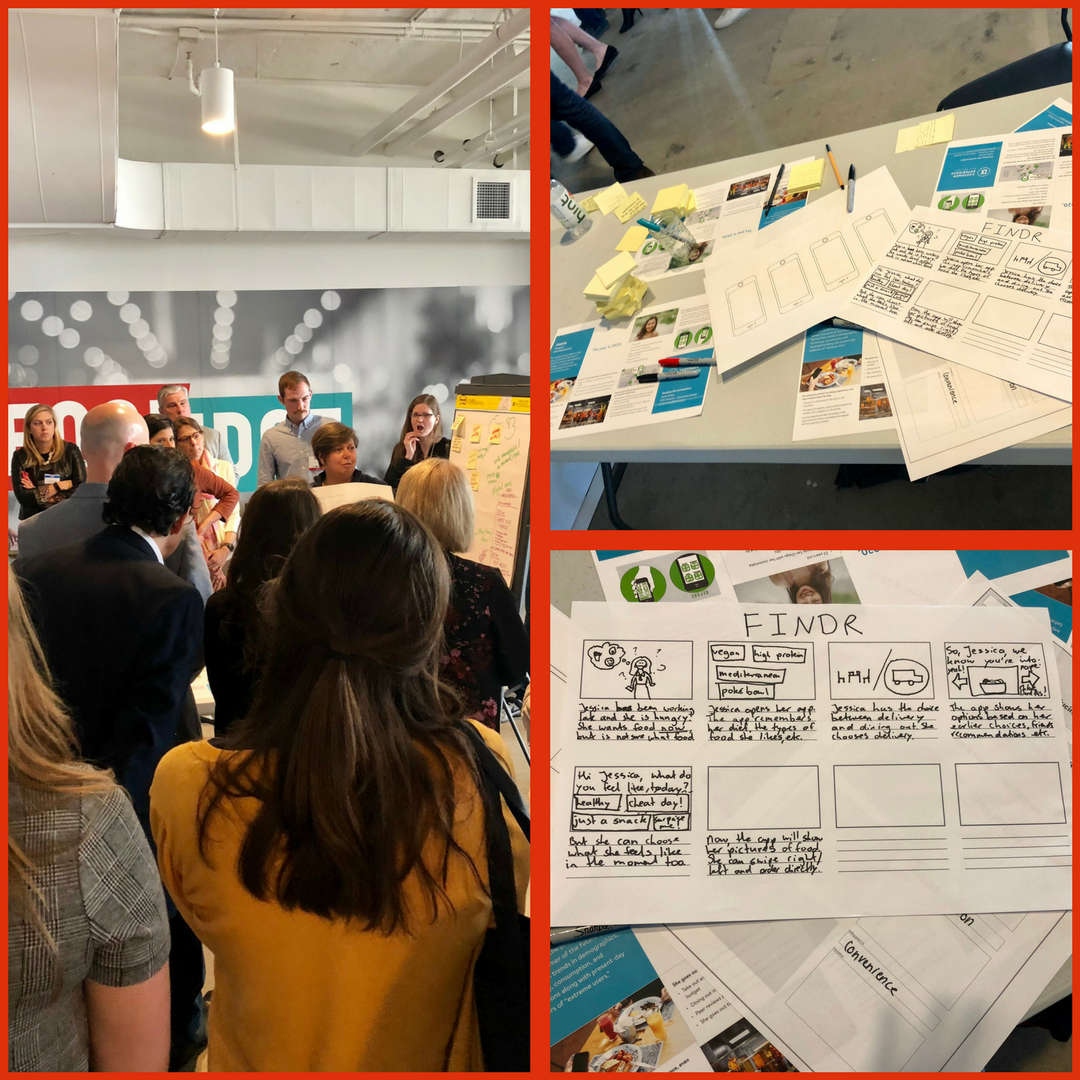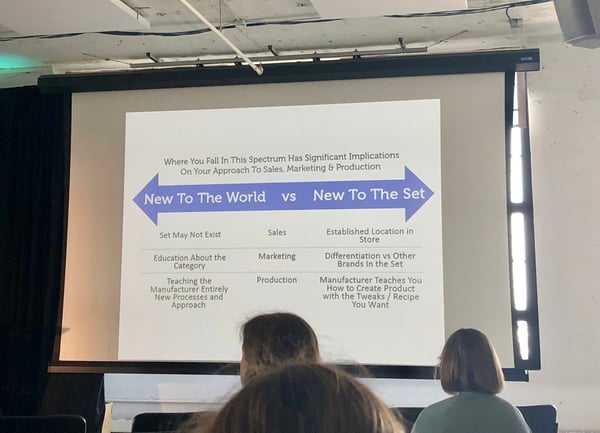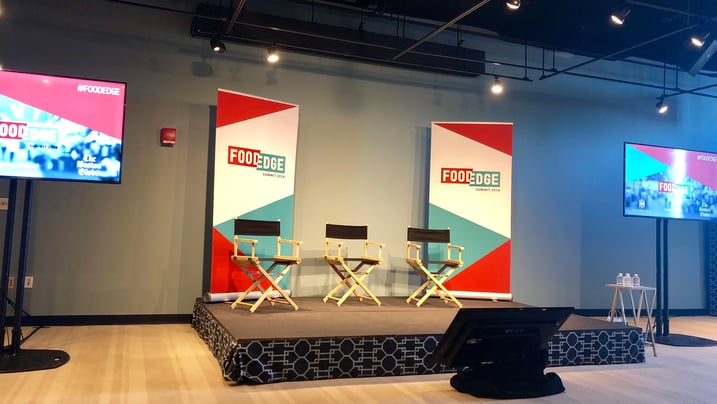At our last Power Hour, we saw how much of a lively food and beverage ecosystem there is in Boston (by the way, it’s not too late to sign up for the next one on May 17!). We can attribute that to many sources, but a big player is communities like Branchfood that connect budding entrepreneurs with mentors, investors, and other resources to get their innovative ideas off the ground.
It was this very organization (in conjunction with marketing/PR firm Hill Holliday and The Boston Globe) that put on a first-of-its kind conference in Boston’s Seaport District, aptly named Food Edge. The event brought together young and veteran brands, retailers, service providers, venture capitalists, farmers, and others to define the future of food.
The two days of the conference were action-packed with panel discussions, workshops, networking, and of course, good eats. While there was a lot to take in, a few recurring themes arose.
Check out my top three takeaways below, and what I think they mean for the world of food retailing going forward.
Own Your Backyard
Many brands aspire to be sold at a national or international scale, but successful ones realize that’s impossible to do if they don’t make strides in the regional playing field first. Why is that?
First off, local retailers are often your champions. Take Boomerang’s Pies for example. Co-founder and CEO Lance McInnes explained to us how being steps away from Whole Foods HQ in Austin, TX was integral to his frozen pie company’s early wins. The purveyor of better-for-you groceries worked directly with Boomerang’s to help with ingredient sourcing and the brand’s initial launch.
Then there’s Texas supermarket powerhouse H-E-B, an advocate of local startups that goes to great lengths to support nearby farmers and made-in-the-state goods even if it’s expensive. H-E-B understands and accommodates its niche market of southeast Texas, an attitude that’s led to the chain’s explosive growth, and the growth of the brands it supplies.

Craig Boyan, President of H-E-B, on the value of serving your local community
I also heard from John Rand, founder of Life at Retail, who hammered the importance of personalization and reaching the right shopper at the right moment to build loyalty. “It’s more about filling pantries than filling warehouses” he says, an idea brands should be thinking about when it comes to scaling.
Rapidly Iterate, or Rapidly Decline
We all know that the retail landscape is dynamic, and changes are occurring faster than ever. Between acquisitions, e-commerce, and in-store tech, brands are scrambling to keep up. The answer is to iterate on their products frequently and fast.
Experts in design thinking from Hill Holliday guided us through a workshop that put this principle into action. Attendees were split into groups and asked to create a product (physical or digital) that would solve a problem of a hypothetical 23-year-old foodie consumer living in the year 2020.
The workshop did a great job of showing how to translate abstract ideas into something tangible as fast as possible, and why we need to start thinking about the consumers of the future now. In reality, it could take until 2020 for some of our ideas to be brought to life. What’s reassuring is that it only took us minutes to brainstorm solutions, a takeaway for brands worried about speed.

Workshop led by Hill Holliday on design thinking and food innovation
Impossible Foods, makers of allergy-friendly frozen treats, showed their iteration process in action, sharing stories about success and failure in product development. The brand talked about why marketing and R&D need to work together to gather market intelligence and get messaging right. In some cases, the technology comes before its application, a good sign that your brand is staying one step ahead of the pace.
.png)
Presentation from Impossible Foods on product development
Define Your Marketing From the Get-Go
While your product might undergo radical change, one thing that shouldn’t is your marketing messaging. Sure it will morph with time, but your brand’s core identity needs to remain consistent to harbor loyalty.
One brand that knows this all too well is Vice Cream, a company set out to make frozen treats indulgent and sexy, but always clever and never raunchy. Founder Dan Schorr made the decision from the get-go that his brand would be unapologetic, just like his “real” ice cream. Last summer, Vice Cream experimented with a TV spot advertising a hotline consumers could call to have any flavor seductively described to them, an effort that won praise for its humor in the marketing community.
Another brand that’s staying true to its roots is Biena, a whole food chickpea snack. Founder Poorvi Patodia is clear that her products compete with potato chips, not nuts, despite being more similar to the latter in size and texture. She also touched upon the challenges associated with marketing a product as it’s new to the world, and new to its category; both require a different set of messaging.

The founder of Biena Snacks explains how messaging changes when you're educating the pubic on a brand new product or category
The first Food Edge Summit shed light upon issues that brands need to be thinking about now if they want to succeed in the near future. We can’t wait until next year’s show! Click here to see what other events Repsly will be attending and hosting in 2018.




.png)



